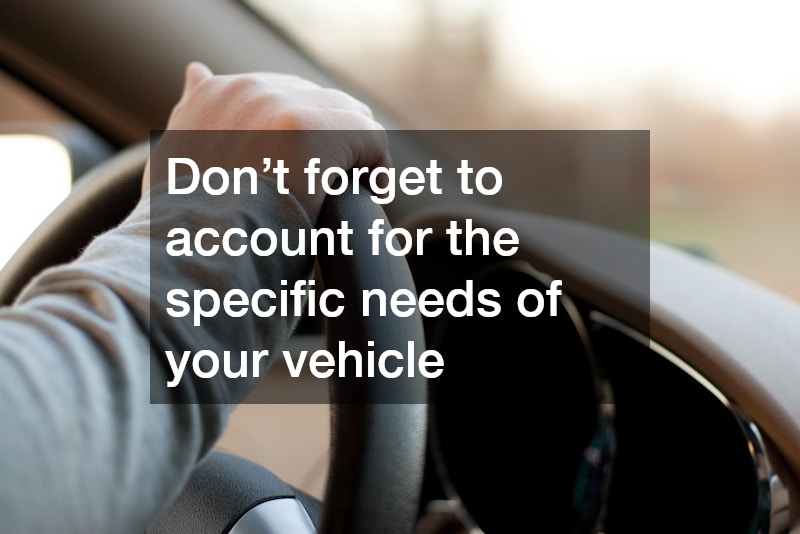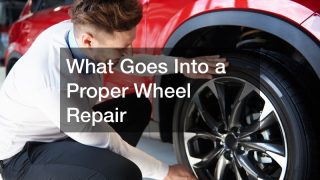
When it comes to owning a vehicle, securing the right auto insurance coverage is one of the most important decisions you’ll make. Not only does it protect your financial well-being in the event of an accident, but it also ensures that you comply with state laws. However, navigating through the different types of coverage options can be overwhelming, especially for first-time buyers. This comprehensive guide will help you understand the basics of auto insurance, what to look for in your policy, and how to make an informed decision on the coverage that’s best for you.
Understanding Auto Insurance: A Necessity for Every Vehicle Owner
Before diving into specific types of coverage, it’s essential to understand what auto insurance is and why it’s necessary. Auto insurance is a policy that protects you from financial loss in the event of an accident, theft, or other damage to your vehicle. The right insurance will not only protect you from potential legal consequences but also safeguard your financial security when unforeseen circumstances arise.
Auto insurance policies generally include several core components: liability coverage, collision coverage, comprehensive coverage, and more. Each type of coverage serves a different purpose, and the cost of your premiums will depend on the level of protection you select. Whether you’re a new car owner or have been driving for years, understanding these components is crucial for selecting the right policy.
Types of Auto Insurance Coverage
Choosing the right auto insurance starts with understanding the different types of coverage available. Each coverage type serves a specific purpose, depending on your needs, driving habits, and the value of your vehicle. Here’s an overview of the primary types of auto insurance coverage:
Liability Coverage
Liability insurance is mandatory in most states. It helps pay for damages if you’re at fault in an accident. Liability coverage is divided into two parts: bodily injury liability and property damage liability. Bodily injury liability covers medical costs for anyone injured in an accident that you cause. Property damage liability covers the cost of repairing or replacing another person’s vehicle or property that you damage.
Liability insurance is essential because it protects your finances if you cause harm to another driver or their property. For business owners who rely on a fleet of vehicles, such as a local auto repair shop or a company that operates detroit diesel trucks, liability coverage is crucial for minimizing potential financial losses caused by accidents.
Collision Coverage
Collision coverage helps pay for repairs or replacement of your vehicle if it’s damaged in an accident, regardless of who is at fault. This type of coverage is particularly useful for those who own new or expensive vehicles, as it can cover significant repair costs that might arise after an accident. If your vehicle needs repairs following a collision, your policy will cover those costs, allowing you to avoid the high expenses typically involved in auto body repairs.
For business owners operating a fleet of vehicles, such as those utilizing fleet maintenance services, collision coverage ensures that damage to any vehicle used in business operations is covered.
Comprehensive Coverage
Comprehensive coverage protects your vehicle from damages not caused by a collision, such as vandalism, theft, hail damage, and falling objects. If your vehicle is damaged by something outside your control, this coverage helps pay for repairs or replacement. This type of insurance is especially important for owners of electric vehicles or classic cars—vehicles that are vulnerable to unique risks. This is why it’s important to prioritize the right care, such as seeking out an electric vehicle charging station when necessary.
For example, if your vehicle is damaged by a fallen tree during a storm, comprehensive coverage would cover the repairs. Similarly, for those involved in antique auto restoration, this type of coverage is crucial because it helps preserve the value of the car.
Personal Injury Protection (PIP)
Personal Injury Protection, or PIP, helps pay for medical expenses for you and your passengers, regardless of who is at fault in an accident. This coverage can also pay for lost wages, funeral expenses, and even childcare costs if the injury prevents you from working. In some states, PIP is required, while in others, it’s optional.
PIP coverage is particularly beneficial for drivers who don’t have health insurance, as it provides immediate access to funds for medical care. If you are involved in an accident that requires auto ac repair or more extensive repairs, PIP can help cover related medical expenses.
Uninsured/Underinsured Motorist Coverage
What happens if you’re in an accident with a driver who doesn’t have enough insurance—or any insurance at all? That’s where uninsured/underinsured motorist coverage comes into play. This type of coverage helps pay for damages and medical expenses if the at-fault driver lacks sufficient insurance.
In an ideal world, everyone would have the appropriate amount of insurance. However, in reality, accidents with uninsured drivers are more common than you may think. In the event of such an accident, this coverage ensures that you aren’t left paying for the damages out of pocket.
Assessing Your Insurance Needs
Your needs will vary depending on the vehicle you drive, your personal preferences, and your financial situation. Here are some considerations to help you determine what kind of coverage is best suited for you:
Vehicle Type
The type of vehicle you own plays a significant role in determining the level of coverage you need. If you drive a vintage car undergoing antique auto restoration, or a high-end vehicle, comprehensive and collision coverage is highly recommended. Similarly, if you own a business and rely on fleet vehicles, you’ll need comprehensive coverage for each vehicle, as accidents and wear-and-tear can occur more frequently.
Driving History
Your driving history impacts your premium rates. Drivers with a clean record typically pay less for auto insurance than those with a history of accidents or traffic violations. Be sure to factor in any potential rate increases based on your past driving behavior.
Your Budget
If you’re looking for affordable auto insurance, you may be tempted to go with the lowest premium available. However, this often means sacrificing crucial coverage. Consider your needs carefully before choosing a plan that offers minimal coverage to save a few dollars.
If you drive a newer or more expensive vehicle, you may want to opt for more extensive coverage, including liability, collision, and comprehensive protection. For those with older vehicles or business-related vehicles, consider business insurance or more affordable policies that still cover essential areas like liability.
The Risks You Face
Think about the risks you face while driving. If you often travel in areas where accidents are more likely, or if you use your vehicle for business purposes, you may need more coverage. For instance, those with detroit diesel trucks or operating fleet maintenance services should ensure their insurance covers business-related incidents.
Discounts and Additional Coverage Options
Many insurance companies offer discounts for safe driving, bundling policies, or even maintaining a clean car. Take advantage of these offers to reduce your premiums. If you’ve completed a defensive driving course or have a low mileage on your car, you may qualify for additional savings. You can even receive financial benefits of using an electric vehicle charging station if you have recently switched to that kind of car.
In addition to basic coverage, many companies offer add-ons to further customize your policy. For example, some offer rental car reimbursement if your vehicle is in the shop for repairs or auto ac repair. Additionally, you might want to consider adding coverage for road assistance, such as towing services, if your vehicle breaks down.
How Insurance Affects Maintenance Costs
Your auto insurance policy can have a significant impact on your vehicle’s maintenance costs. For example, auto body repairs or engine repair shop visits can be expensive, but if you have collision or comprehensive coverage, your policy may help cover those costs. Regular vehicle maintenance, such as oil changes and brake checks, can also lower your chances of making an insurance claim in the first place, reducing the overall cost of repairs.
For business owners with fleets, such as those who use detroit diesel trucks, maintaining a regular schedule for fleet maintenance services can help lower the risk of accidents and mechanical failures, keeping your insurance premiums low.
Special Considerations for Business Insurance and Fleet Coverage
If you operate a business that involves multiple vehicles, you’ll need to consider business insurance that covers your fleet. Fleet insurance policies are designed to cover multiple vehicles under one umbrella, offering the convenience of having a single policy for all vehicles. These policies can cover everything from auto body repairs to liability and medical expenses for employees driving company vehicles.
For example, if you run a business that includes vehicle tag renewal and maintenance services, it’s essential to have the right insurance in place to cover both vehicles and the drivers using them.
Securing the right auto insurance coverage is essential for every vehicle owner. Whether you drive a brand-new car, a vintage classic undergoing antique auto restoration, or manage a fleet of detroit diesel trucks, understanding your insurance options ensures you are adequately protected. By considering the various types of coverage, assessing your personal and business needs, and comparing quotes, you can find the right policy that offers peace of mind at the best rate.
Don’t forget to account for the specific needs of your vehicle, whether it’s regular maintenance, auto ac repair, or business-related coverage for your fleet. By being informed about your options and taking the time to evaluate your needs, you can confidently choose the right auto insurance that meets both your personal and financial goals. Don’t hesitate to reach out to a local auto repair shop that can provide the services you need.




